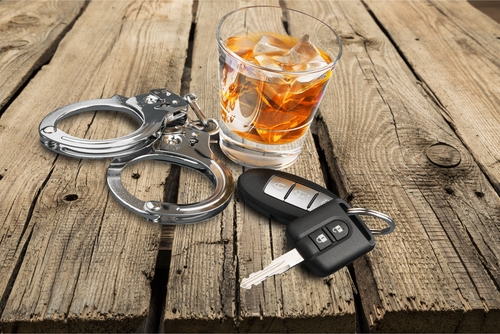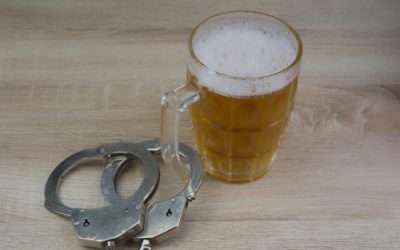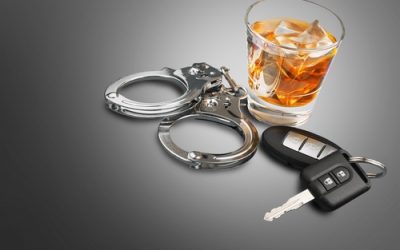Since Illinois implemented drunk driving laws in 1997, the number of drunk driving fatalities each year has decreased by nearly 43%. In 1996, the year before the .08 law took effect, 534 people died in crashes where at least one person had a BAC of .08 or higher. According to the Illinois Secretary of State’s Illinois DUI Fact Book, 330 people died in alcohol-related crashes in 2017. That’s about 30% of all traffic fatalities in the state.
Some 2017 drunk driving statistics in Illinois:
- Police arrested 27,046 people for DUI in 2017
- 75% of people arrested for DUI are male
- 57% of DUI offenders are under the age of 35, with the average age of 34
- Police arrest most offenders between the hours of 11pm and 4am on a weekend
- The average DUI offender’s BAC is .16 — twice the legal limit
- 91% of people arrested for DUI lost their driving privileges
- 86% of drivers arrested for DUI are first-time offenders
DUI Laws in Illinois
Illinois, like the rest of the United States, has a .08 DUI law for drunk driving meaning anyone caught driving with a blood alcohol content (BAC) of .08 or higher can be charged with DUI. For a school bus driver or anyone under 21, Illinois has a zero tolerance policy so any measurable BAC is illegal. And a commercial driver with a BAC of .04 can be charged with DUI.
If you’re convicted of DUI in Illinois, you face a number of criminal penalties that range in severity depending on if this was your first offense or a repeat offense. Above, we mentioned that a whopping 86% of DUI arrests in Illinois are first offenses. That indicates that one DUI is all it takes for most people to avoid drinking and driving. Part of that may be that penalties increase substantially for a second DUI within 20 years of the first one. And a third DUI is an automatic felony.
Penalties include:
- Fines from $500 to $25,000 with aggravating circumstances
- Jail or prison time varies depending on the offense
- Probation
- Alcohol education
- Community service from 100 hours to 25 days
- License suspension from one year for a first offense to suspension for life for a third offense
- Install an ignition interlock device (IID)
- Maintain high risk insurance for three years
DUI and Driving Privileges
Once you’ve served any jail time and paid your fines (criminal penalties) you still have to deal with the administrative penalties that result from your DUI.
If you fail chemical testing:
- First offense — You face suspension of driving privileges for six months. (You’ll be eligible for a Monitoring Device Driving Permit)*
- Second or subsequent offense within five years — You’ll face suspension of driving privileges for one year
If you refuse to submit to chemical testing:
- First offense — You face suspension of driving privileges for 12 months. (You’ll be eligible for a Monitoring Device Driving Permit)
- Second or subsequent offense within five years — You’ll face suspension of driving privileges for three years
Monitoring Device Driving Permit (MDDP)
The Monitoring Device Driving Permit (MDDP) is for first-time DUI offenders. With this permit, you can operate a vehicle as long as it is equipped with a Breath Alcohol Ignition Interlock Device (BAIID). You can drive anywhere, at any time. Illinois requires ignition interlock devices be equipped with a camera that captures your image each time you take the breath test. This is to ensure you don’t try and bypass the system by having someone else take the breath test for you.
The BAIID records the results of each breath test, and will alert the Secretary of State’s office if you attempt to start the vehicle while you are under the influence or if you attempt to tamper with the device.
If you choose not to install the BAIID and serve out your suspension, you may do so, but if you are caught driving a vehicle without a BAIID, it is a Class 4 felony. It is also a Class 4 felony if you have a BAIID in your vehicle, but are caught driving a vehicle not equipped with the device.
The length of time you will need to have the BAIID installed will vary depending on the specifics of your DUI offense.
Restricted Driving Permit (RDP)
If you’ve been convicted of a second or third DUI, you must install a BAIID in order to get a restricted driving permit (RDP). This allows you to drive on a restricted basis. You are required to install a BAIID on every vehicle registered to you for five continuous years before you can get full driving privileges back.
The bottom line is a DUI in Illinois is very costly. According to figures from the Secretary of State’s office, a DUI can cost you $18,030 when you include legal fees, fines, court costs, insurance, lost income, BAIID, and more.
Schedule Your Ignition Interlock Device Installation
If you need to get a BAIID installed, you’ll be happy to know that ALCOLOCK has a number of ignition interlock device installation locations in Illinois. From Rockford to Woodlawn to everywhere in between, you’re sure to find a location convenient to you. Call your nearest service center, or call us directly at 866-700-9300 to schedule your ignition interlock device installation. Your installation appointment should take approximately an hour. That includes the actual device installation, as well as the time it takes to train you in how to use the device. Before you know it, you’ll be back on the road towards regaining full driving privileges.



